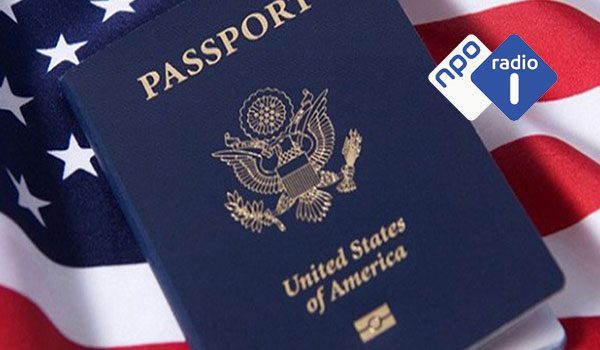
TIGTA recommends more enforcement and a centralized compliance effort are required for expatriation provisions

TIGTA found massive noncompliance with the tax provisions applicable to American expatriates and told the IRS that more enforcement and a centralized compliance effort are required for expatriation provisions.
The Treasury Inspector General for Tax Administration (TIGTA) recently issued its report “More Enforcement and a Centralized Compliance Efforts Are Required for Expatriation Provisions” telling the Internal Revenue Service (IRS) that it needs to do more to make sure that the rising number of US citizens and long term residents abandoning their US status are paying their taxes.
TIGTA found massive noncompliance with the tax provisions applicable to so-called “expatriates”.
What the TIGTA does?
The Treasury Inspector General for Tax Administration (TIGTA) was established under the IRS to provide independent oversight of IRS activities. TIGTA promotes the economy, efficiency, and effectiveness in the administration of the internal revenue laws. It is also committed to the prevention and detection of fraud, waste, and abuse within the IRS and related entities.
Why TIGTA did do this audit?
With the rising number of taxpayers giving up or abandoning their U.S. citizen or resident status, it is important that the IRS have controls in place to enforce the tax provisions applicable to expatriates.
This audit was initiated to determine the effectiveness of the IRS’s efforts in ensuring compliance with the expatriation tax provisions to reduce taxpayer burden.
Impact on Taxpayers
There may be tax consequences when taxpayers (expatriates) relinquish their citizenship or when long-term residents terminate their U.S. residency.
Expatriates are required to conduct a deemed sale of their worldwide assets and pay an “exit tax” on the net unrealized gain as if the property had been sold for its fair market value on the day before expatriation.
What TIGTA Found
The TIGTA found that the IRS did not have a centralized compliance effort aimed at enforcing the expatriate rules. Instead, TIGTA found that the IRS is primarily focused on collecting and publishing data on expatriates.
Expatriates are required to file Form 8854, Initial and Annual Expatriation Statement, to certify that they have been in compliance with all Federal tax laws during the five years preceding the year of expatriation. TIGTA found that the IRS database of expatriates was incomplete for 16,798 expatriates who did not file Form 8854.
In addition, TIGTA found instances of potential non-filing, underreporting of income, and/or payment compliance issues by expatriates.
Lastly, TIGTA also found that expatriates with high net worth appear to not be paying their exit tax. Without a centralized compliance effort, Congress’s attempts to create disincentives to expatriates via Section 877A will not be effective.
What TIGTA recommended to the IRS
TIGTA recommended that the IRS:
1) Contact the Department of State, via the Federal Intergovernmental Program, for the Social Security Number data field to be added to Form DS-4083, Certificate of Loss of Nationality of the United States, and explore the feasibility of obtaining the Certificate of Loss of Nationality electronically.
2) Update the Letter 2399C Failure to File – Initial Form 8854, and Letter 4135C, Failure to Respond to Initial Form 8854 Request, for compliance under the HEART Act, and develop Internal Revenue Manual procedures to use these letters to obtain Form 8854 when a Certificate of Loss of Nationality is received and no Form 8854.
3) Evaluate the information reported on Form 8854 and determine what data fields should be added to the expatriate database to ensure tax compliance of taxpayers who expatriate.
4) Develop Internal Revenue Manual procedures for transcribing Form 8854 data, correcting Form 8854 data when information, as filed by expatriates, is missing or incomplete, and preparing analysis as needed to determine if the expatriate is a covered expatriate and subject to tax under Internal Revenue Code Section 877A.
5) Establish a process to compile information on all expatriates whether they filed Form 8854 with their individual tax return Form 1040-NR, U.S. Nonresident Alien Income Tax Return, or filed Form 8854 with the Philadelphia Campus and use this information to identify the highest risk expatriate returns for tax compliance.
The IRS agreed with all TIGTA’s recommendations.
Need more information on filing Form 8854?
We, the founders of Americans Overseas, were born in the Netherlands and obtained our American nationality through our (American) mother.
When we heard about the US tax system for the first time around 2013, we were in total disbelief (it can’t be true!), anger (how can they do this?), fear (am I going to get fined or pick up other problems?), and panic (what should I do?). It is (unfortunately) true that there is an additional American tax levy. But there’s no information from the local government, and when approached, the consulate referred us to the IRS, and the IRS was impenetrable.
That’s why we started this initiative to help people from all over the world by providing proper information about the US tax system to avoid unnecessary panic and offering help free of obligation and free of charge. If needed, we have a network of affordable professionals (accountants) who can help you with your tax obligations.
Contact us for more information
Source: TIGTa audit report
Frequently asked questions
Understanding the US tax system, the obligations, and all the additional terms can be difficult. Especially if one lives outside of America. Is your question not answered? Contact us.
-
Who is required to file taxes in the US?
U.S. citizens and resident aliens who live abroad are generally required to file a federal income tax return and pay taxes on their worldwide income.
Read more... about Who is required to file taxes in the US? -
Do US citizens living abroad still have to file taxes in the US?
Yes, US citizens are required to file taxes on their worldwide income, regardless of where they are living.
Read more... about Do US citizens living abroad still have to file taxes in the US? -
How can I cash my US check?
Received an American check? You can cash your check in the following ways: cash the check at your own bank, transfer to another person (endorsement), cash checks using an online service or cash the check by another bank.
Read more... about How can I cash my US check? -
Are there any special tax forms required for US citizens living abroad?
US citizens living abroad may be required to file Form 2555 and/or Form 1116 to claim the foreign-earned income exclusion.
Read more... about Are there any special tax forms required for US citizens living abroad? -
What is FBAR filing?
FBAR (Foreign Bank Account Report) filing is the requirement for certain U.S. individuals and entities to report their foreign financial accounts to the Financial Crimes Enforcement Network (FinCEN) of the U.S. Department of Treasury. The FBAR filing requirement applies to U.S. persons who have a financial interest in, or signature authority over, one or more foreign financial accounts if the aggregate value of those accounts exceeds $10,000 at any time during the calendar year.
Read more... about What is FBAR filing?





